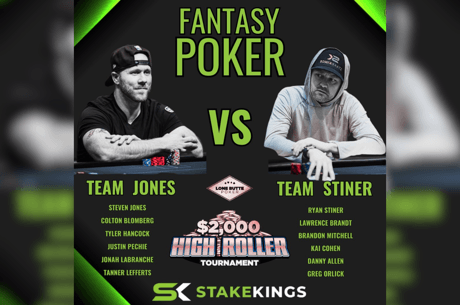Inside Gaming: Atlantic City Casinos Up First Half of Year; DFS Back Online in NY

In this week's installment of Inside Gaming, New Jersey officials release gaming revenue figures for the first half of 2016 that show Atlantic City is on a rebound of sorts (for now), daily fantasy sports is back in New York, and California has to foot a hefty bill to one of its tribes for overpayments.
Atlantic City Casinos Up in Gaming Revenue First Half of 2016
On Monday reflecting that despite recent struggles on the boardwalk, Atlantic City's casinos collectively saw a 21 percent increase in operating profit over the first half of 2016 (H1).
The city's eight casinos reported a collective profit of $258.8 million, up from $213.4 million for 2015 H1 and the highest of any half-year period since 2010.
Six of the eight casinos reported profit increases for 2016 H1, with the Borgata Hotel Casino & Spa, the Resorts Casino Hotel, and Tropicana Casino & Resort Atlantic City all enjoying greater than 25% increases. Only Caesars Atlantic City (down 0.2 percent) and Harrah's Atlantic City (down 3.1 percent) showed a decline in profits from 2015 H1, though profits nonetheless.
Borgata remains by far the largest operator on the boardwalk, with its $106.7 million worth of gross operating profit nearly twice the $57.2 million of next-highest Harrah's and more than 41 percent of the overall total for all eight casinos.
Both the net and total revenue for the eight casinos was up as well. When combined with internet gaming revenue, net revenue was up 2.5% and total revenue 1.6%. July has already shown to be a good month for Atlantic City as well, with total casino revenue up 6.9 percent year-over-year during the month.
New Jersey Casino Control Commission Chairman Matthew Levinson saw the new figures as a source of optimism going forward, despite troubles Atlantic City has experienced in recent years and various uncertainties regarding the future.
"Slowly but surely, casino profits are increasing as operators in Atlantic City work to rebuild their business," said Levinson, as reported by NorthJersey.com. "The $259 million in profits for the six months is the highest since 2010. Profits were up at six of the casinos — and by double digits at four them."
Levinson also noted that for the first time since 2008, every casino reporting a positive operating income.
The already announced scheduled closure of the Trump Taj Mahal in early September should help the remaining seven casinos on the boardwalk in terms of individual profit and revenue. Such was the case in 2014 for the remaining eight when four casinos closed during the course of the calendar year.
That said, in November comes a statewide referendum in which New Jersey voters will get to say whether they favor or oppose allowing the building of casinos outside of Atlantic City in the northern part of the state — an eventuality that if it were to come to pass would no doubt effect the long-term status of the boardwalk casinos.
Read more about the 2016 H1 report at NorthJersey.com.
Daily Fantasy Sports Sites Granted Temporary Permits for New York
On Monday, five daily fantasy sports operators — including DraftKings and FanDuel — were allowed to resume permitting New York residents to play their games following the granting of temporary permits by the New York State Gaming Commission, reports CBS News.
The granting of the permits comes just in time for the end of the Major League Baseball season and the start of the National Football League season next month. DraftKings was already allowing New Yorkers into their games within hours of the announcement that the permits had been granted, and FanDuel was later Monday night. The DFS operators FantasyDraft, Yahoo, and Draft were likewise issed temporary permits.
The games went away in March for DFS players in New York after New York State Attorney Genernal Eric Schneiderman had earlier sent cease-and-desist letters to the sites late last year claiming the games violated state law against illegal gambling. Lawmakers subsequently passed passed a law defining DFS as a game a skill, signed by Governor Andrew Cuomo last month. Based on the new law, New York's Gaming Commission subsequently granted the temporary permits.
"These temporary permits get companies up and running in New York state while assuring resident players that safeguards are in place," stated the Gaming Commission's Executive Director Robert Williams.
Meanwhile a headlining feature story appearing on the ESPN website this week focusing on the daily fantasy sports industry's roller-coaster ride of success, controversy, decline, and ongoing struggle has generated much buzz this week.
Generating from the network's investigative program Outside the Lines, "," describes the sudden rise in popularity in DFS and the two biggest sites, DraftKings and FanDuel, the controversies and challenges arising over the last year-plus, and the complicated business and legal machinations sites are facing today.
Learn more about DFS returning to NY this week .
California to Recompense Tribe $36.3 Million for Overpayments
Amid the ongoing rumblings regarding the future (or non-future) of online poker in California, there was other industry-related news from the Golden State this week as a legal battle stretching back several years was finally resolved. A U.S. Circuit Court of Appeals has ruled the state must pay $36.3 million to the Pauma Band of Luiseño Indians according to the terms of a 1999 casino deal negotiated by then-governor Arnold Schwarzenegger.
According to The Sacramento Bee, the deal involved the state having "traded permission to add slot machines in return for millions of dollars in payments to the General Fund." The 9th U.S. Circuit of Appeals ruled in favor of the tribe after the state failed in an attempt to appeal the case to the U.S. Supreme Court earlier in the summer.
The issue stems from the Pauma band having tried to add more slot machines a few years after the 1999 deal and being told by the Schwarzenegger administration there were no more slot licenses available.
As a result, the Paumas made a new deal in 2004 upping its annual payments to the state from $315,000 up to $7.75 million in order to install hundreds more slot machines. But in truth the 1999 deal did allow for the additional slots, which is why the tribe sued the state for illegally misleading them and ultimately coercing them into making over $36 million in overpayments over the years.
The ruling comes less than a month after current California Governor Jerry Brown had made new agreements with a number of California tribes that ultimately will impose limits on what the state can collect from tribal casinos. The new pacts are based on a 2010 court decision.
Read more about the earlier deal and the new Circuit Court decision .
Photo: “” (adapted), Michel Curi. .
Be sure to complete your PokerNews experience by checking out an overview of our mobile and tablet apps here. Stay on top of the poker world from your phone with our and Android app, or fire up . You can also update your own chip counts from poker tournaments around the world with MyStack on both Android and iOS.









